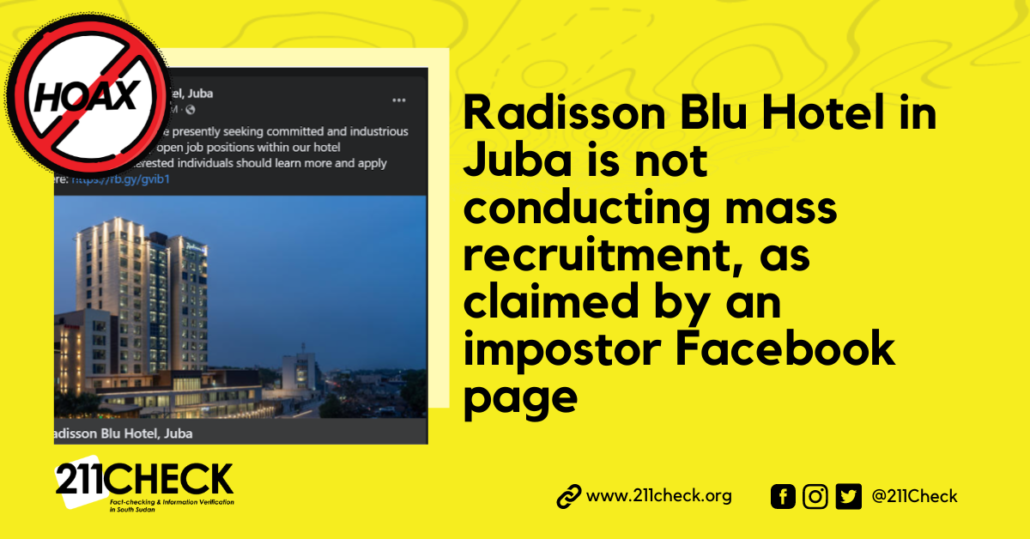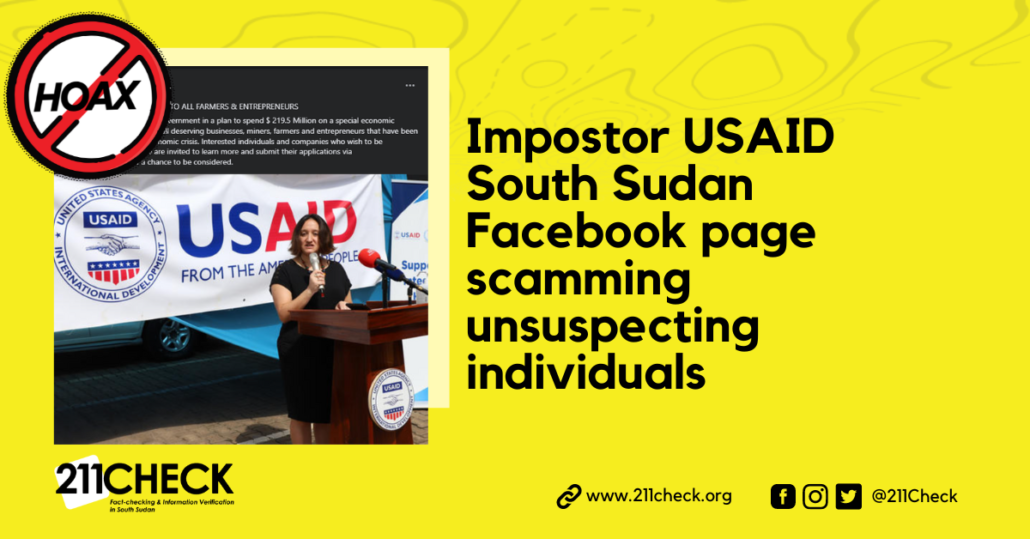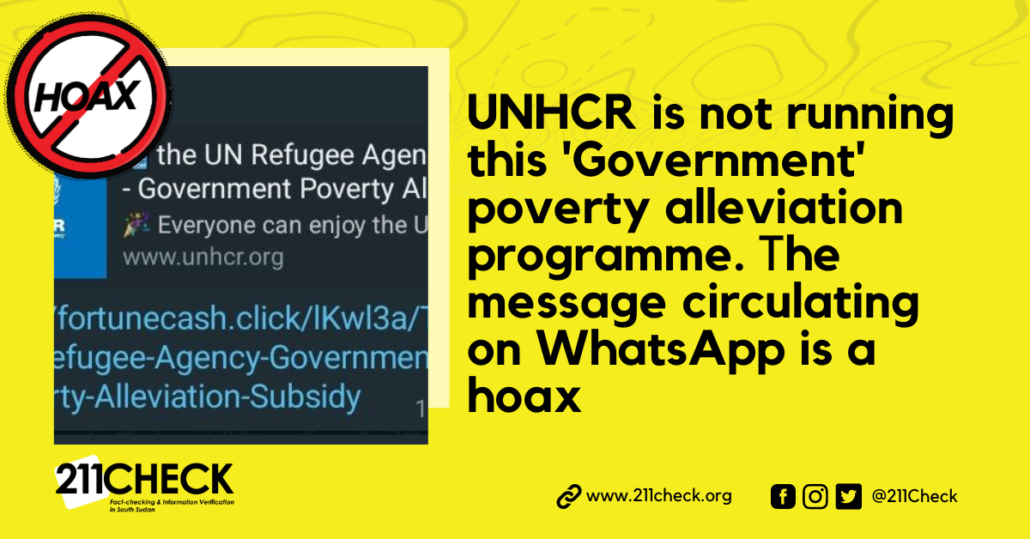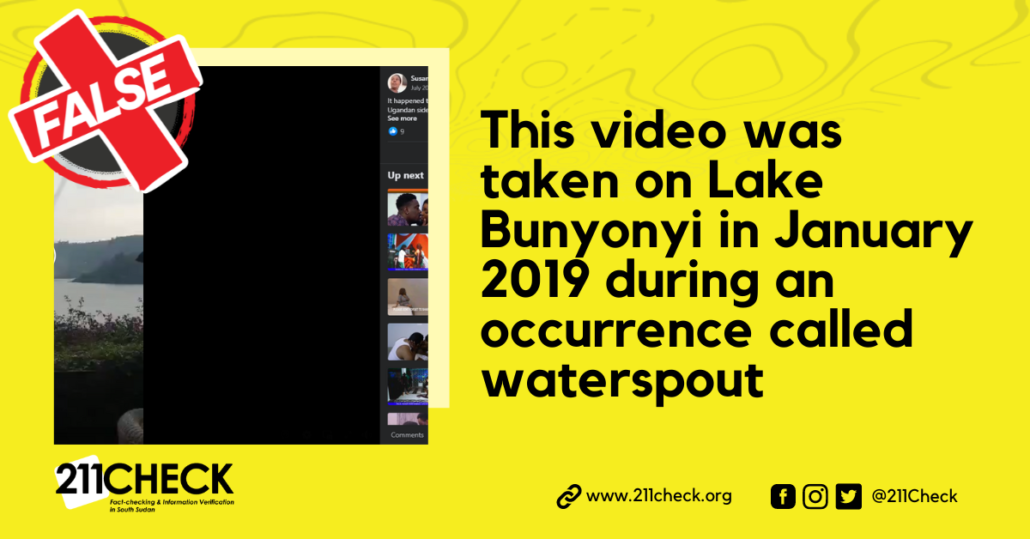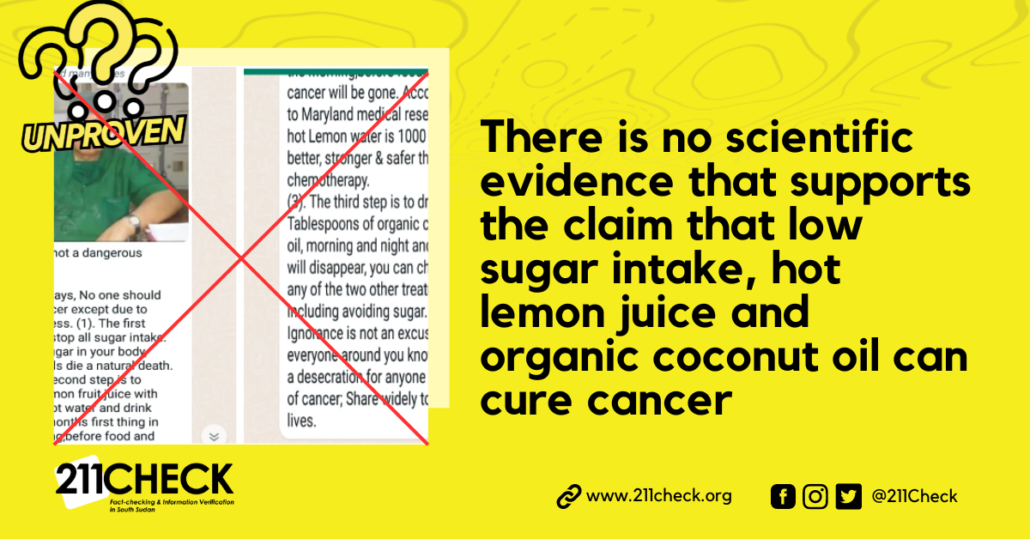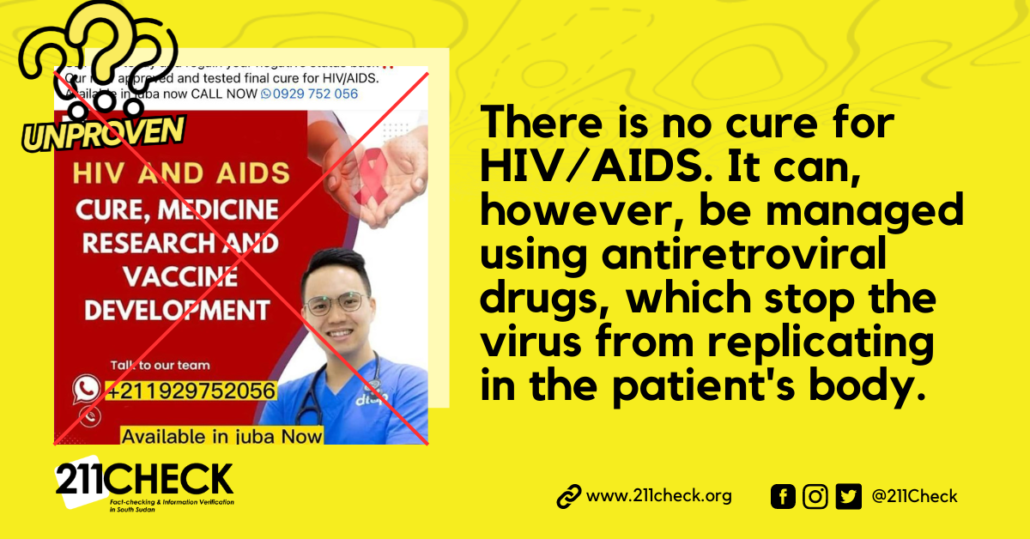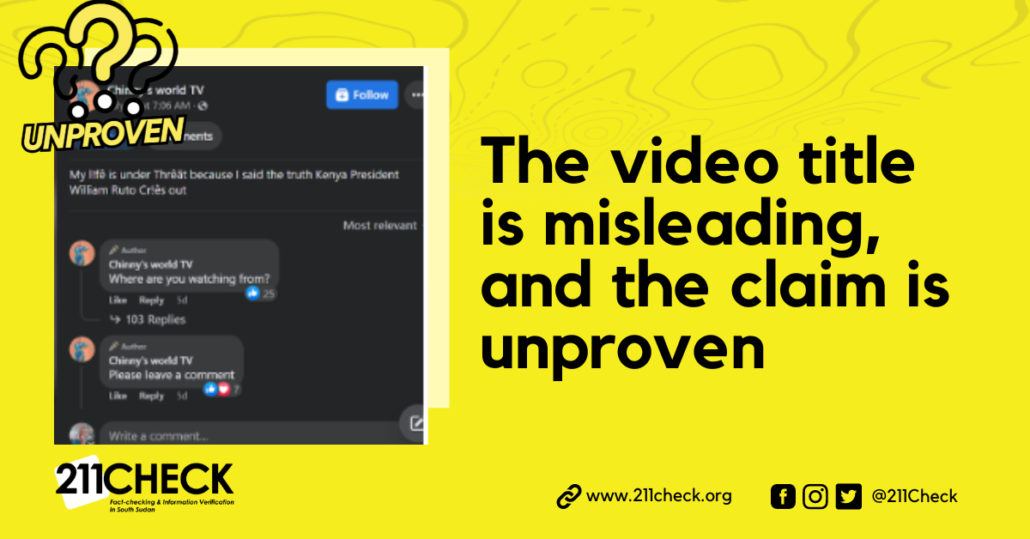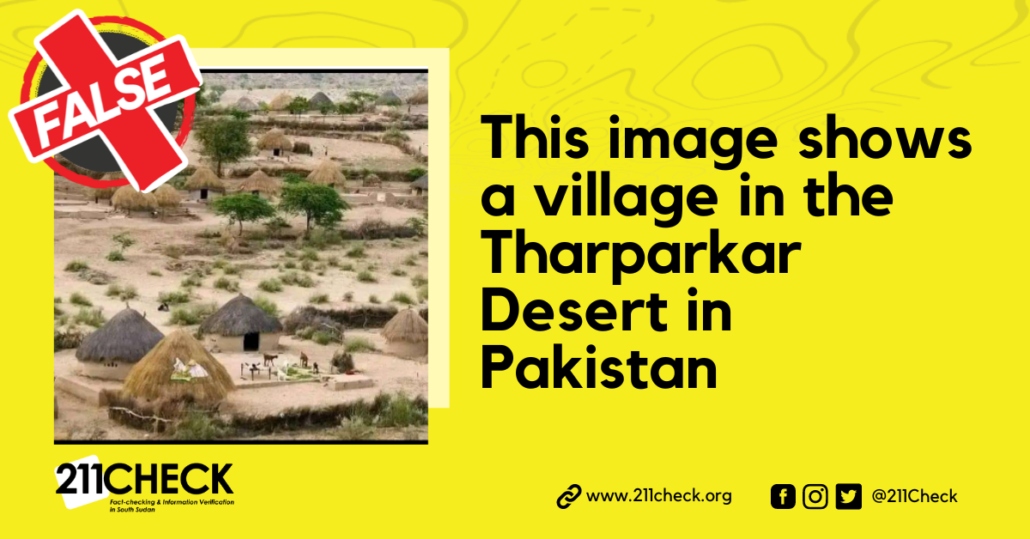Fact-check: Is Radisson Blu Hotel Juba conducting massive recruitment?
No, it is a scam. Radisson Blu Hotel in Juba is not conducting mass recruitment, as claimed by an impostor Facebook page.
Writer: Ochaya Jackson
A Facebook page job advertisement that claimed to be from Radisson Blu Hotel, Juba, is a hoax by fraudsters.
The job advertisement, posted on the 28th of August 2023, claimed to offer more than ten different positions using a designed Google application form.
“We are presently seeking committed and industrious individuals to occupy open job positions within our hotel established. Interested individuals should learn more and apply,” reads part of the statement posted alongside the link to the Google application form.
Screenshot of the recruitment scam as posted on Facebook
Suspicious activity:
The fraudulent Facebook page was created on the 27th of August, 2023, and on the 28th, posted about the availability of job vacancies at the hotel according to the page’s profile transparency. The page has no official contacts for email and phone numbers, including the website address, which is unusual for a business entity like the continental hotel.
The Google-designed form link, when clicked, unveils 14 available positions, which include stock controller, waiters/waitresses, receptionists, cleaners, drivers, Cooks, cashiers, accounts clerks, restaurant managers, pastry Chef, gardeners, masseuses, and laundry attendants.
The application form can be filled out using an applicant’s full name, ID number, phone number, email address, gender category, level of education, position, current employment status, work experience, and references before submitting.
Verification:
211 Check reached out to the management of Radisson Blu Hotel Juba via email for inquiry and verification to ascertain the authenticity of the Facebook page job advertisement. However, it turned out that the job advertisement was a scam and fraudulent.
“We are seriously following up on this matter. We have also made [an] announcement to create awareness to the public at large on the ongoing recruitment scam and fraudulent activity,” reads an email correspondent from the management of Radisson Blu Hotel Juba to 211 Check.
“It has come to our attention that there is an ongoing recruitment scam…claiming to represent Radisson Blu Juba, promising job opportunities at our hotel. The safety and security of our community are of utmost importance to us. We want to assure all our valued followers that this is fraudulent activity, and we are taking immediate action to address the situation,” said Radisson Blu Hotel Juba in a statement it made to the public and was also shared with 211 Check.
The Radisson Blu Juba statement was made public to denounce the fake job advert
Findings:
There is no such advert on the website of the Radisson Blu Hotel Juba, and the social media platforms of the hotel have no advertisement of different positions as the Fake Facebook page claimed.
Conclusion:
211 Check finds that the Facebook page job advert claiming to represent Radisson Blu Hotel Juba is a scam designed by fraudsters to collect their personal information.
Radisson Blu Hotel Juba management confirmed to 211 Check in an email that the Facebook job advert was not from their institution but a “recruitment scam and fraudulent activity.”
To ensure accuracy and transparency, we at 211 Check welcome corrections from our readers. If you spot an error in this article, please request a correction using this form. Our team will review your request and make the necessary corrections immediately, if any.
It’s vital to fight misinformation and disinformation in the media by avoiding fake news. Don’t share content you’re uncertain about. False information can harm and mislead people, risking their lives—Fact-check before sharing. For more details, visit https://211check.org/ or message us on WhatsApp at +211 917 298 255. #FactsMatter.

